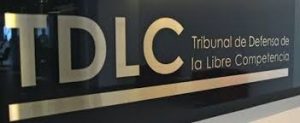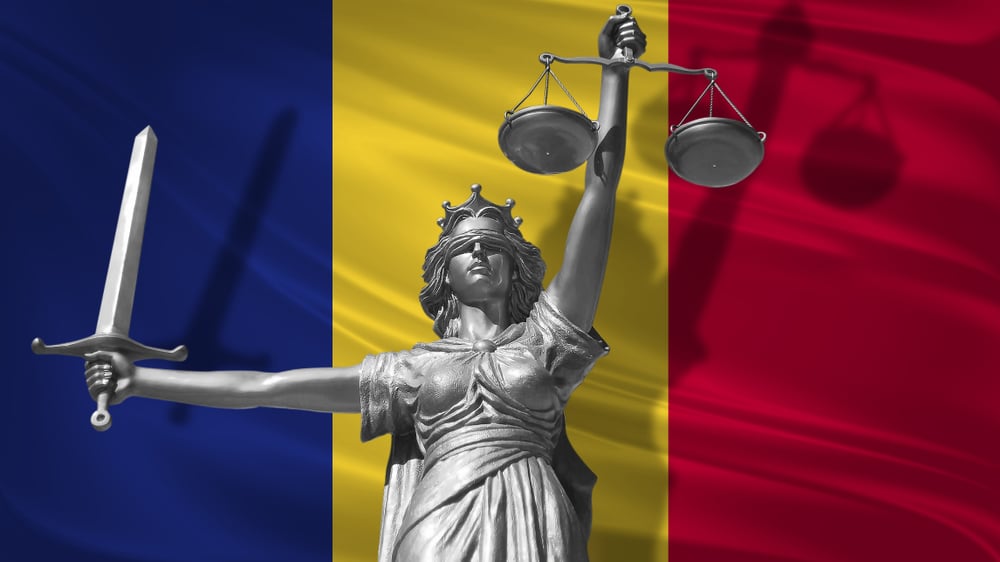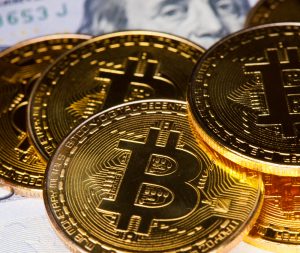Following the ruling by Chile’s supreme court that a bank can legally close accounts of a crypto exchange, the country’s Court of Defense of Free Competition reaffirmed that banks must reopen crypto exchanges’ accounts. The Chilean antitrust court continues to hear the case alleging that banks exploit their dominant position to keep crypto exchanges off the market.
Also read: Indian Supreme Court Moves Crypto Hearing, Community Calls for Positive Regulations
 Chile’s Court of Defense of Free Competition (TDLC) rejected banks’ request on Wednesday to vacate its injunction that forced them to keep accounts of crypto exchanges open. Their request was “based on the ruling of the supreme court, issued in early December, which determined that the closure of an account of [crypto exchange] Orionx by Bancoestado was legal,” La Tercera publication wrote. Dario Financiero news outlet elaborated:
Chile’s Court of Defense of Free Competition (TDLC) rejected banks’ request on Wednesday to vacate its injunction that forced them to keep accounts of crypto exchanges open. Their request was “based on the ruling of the supreme court, issued in early December, which determined that the closure of an account of [crypto exchange] Orionx by Bancoestado was legal,” La Tercera publication wrote. Dario Financiero news outlet elaborated:
The TDLC noted in its resolution that the ruling of the country’s highest court ‘does not constitute a new precedent that will change the resolution.’
 Martín Jofré, the CEO of crypto exchange Criptomkt, commented after the ruling: “For us, it is a success since we need bank accounts to operate in the market. In any case, we always rely on Chilean institutions, especially on the TDLC for its role as defender of free competition.”
Martín Jofré, the CEO of crypto exchange Criptomkt, commented after the ruling: “For us, it is a success since we need bank accounts to operate in the market. In any case, we always rely on Chilean institutions, especially on the TDLC for its role as defender of free competition.”
 Cryptocurrency exchanges filed a lawsuit with the TDLC against 10 major banks in Chile last year, accusing them of abusing their dominant position after they unilaterally decided to close their accounts. The TDLC then ordered banks to reopen accounts of the exchanges for the duration of the trial.
Cryptocurrency exchanges filed a lawsuit with the TDLC against 10 major banks in Chile last year, accusing them of abusing their dominant position after they unilaterally decided to close their accounts. The TDLC then ordered banks to reopen accounts of the exchanges for the duration of the trial.
Bancoestado and Itau took the case to the country’s supreme court which subsequently ruled that the banks can legally close accounts of a crypto exchange. With the supreme court’s validation, the two banks asked the TDLC to cancel its order for them to reopen accounts of the exchanges.
 “The resolution of the court [TDLC] seems completely legally sound to us,” lawyer Samuel Cañas, representing local crypto exchange Buda.com, was quoted by Dario Financiero as saying after the TDLC ruled on Wednesday.
“The resolution of the court [TDLC] seems completely legally sound to us,” lawyer Samuel Cañas, representing local crypto exchange Buda.com, was quoted by Dario Financiero as saying after the TDLC ruled on Wednesday.
 “On the other hand, the issuance of judgments such as that of the supreme court” against crypto exchanges “should not have legal relevance on the decisions that the Tribunal [Tribunal de Defensa de la Libre Competencia, TDLC]” makes on the subject of free competition, therefore it should be “inadmissible,” he added.
“On the other hand, the issuance of judgments such as that of the supreme court” against crypto exchanges “should not have legal relevance on the decisions that the Tribunal [Tribunal de Defensa de la Libre Competencia, TDLC]” makes on the subject of free competition, therefore it should be “inadmissible,” he added.
Mario Bravo, legal advisor to Cryptomkt, said that “the witnesses that we have cited, that is, the finance minister, the economy minister, the president of the central bank, the superintendents of banks, [and] the director of the UAF [Unidad De Analisis Financiero]” will give their testimonies to the TDLC in February. He concluded:
We believe that we will be able to prove that the banks illegitimately expel Buda and Cryptomkt from the market because they are companies that compete with them.
What do you think of the TDLC’s decision? Let us know in the comments section below.
Images courtesy of Shutterstock, TDLC, Cryptomkt, and Buda.com.
Need to calculate your bitcoin holdings? Check our tools section.
The Romanian judiciary has decided to hand over to U.S. authorities the founder and CEO of Coinflux, one of the country’s cryptocurrency exchanges. Vlad Nistor has been accused of a number of crimes including the laundering of illicitly obtained funds through his digital asset trading platform.
Also read: Russians See Growing Number of Options to Buy Cryptocurrencies
 Vlad Nistor was arrested in December by Romanian law enforcement officials and Secret Service agents in Cluj, where his crypto business is based. He was released soon after that by the Bucharest Court of Appeal but not allowed to leave the city. The 29-year-old entrepreneur submitted an appeal against the U.S. extradition request. On Dec. 20, the court rejected his objections.
Vlad Nistor was arrested in December by Romanian law enforcement officials and Secret Service agents in Cluj, where his crypto business is based. He was released soon after that by the Bucharest Court of Appeal but not allowed to leave the city. The 29-year-old entrepreneur submitted an appeal against the U.S. extradition request. On Dec. 20, the court rejected his objections.
According to local media, the High Court of Cassation and Justice, Romania’s supreme judicial authority, has upheld the decision by the lower instance and ordered Nistor’s transfer to U.S. custody. Nistor is wanted for his participation in crimes committed by other Romanian nationals. Using Coinflux, the group allegedly laundered money from their criminal activities, including defrauding U.S. citizens.

Last month, the businessman’s lawyer Anatol Pânzaru protested against the extradition and argued that the requirements of the agreement on judicial cooperation between Romania and the United States have not been met. He thinks Nistor is wrongly accused of crimes committed in the U.S., and not in Romania as the American side claims, in which he was not directly involved.
Pânzaru explained that the scammers have initially exchanged their proceeds to bitcoin on U.S. territory and that’s where the actual money laundering occurred. Then other people converted the coins back to fiat currency on Nistor’s exchange in Romania. The lawyer insists his client had no way of knowing these were illicit funds.
In his statement in court, Vlad Nistor said he established the trading platform after working for seven years in the financial sector. “When you try to grow a business, you don’t think of committing crimes, because the value of that business is diminished,” stated the 29-year-old Coinflux owner, as quoted by the Romanian news agency Mediafax.
The exchange was founded in 2015 and has since traded cryptocurrency worth over $229 million, processing more than 203,000 transactions, according to its records. Last year the platform had a turnover of more than $3.4 million and made over 30,000 transactions. A warning on its website now reads “Trading disabled, bank account frozen.”
In a message to its users, Coinflux states that it has been forced to stop all digital currency exchanges due to an “unexpected investigation.” The company informs its customers it’s doing everything possible “to make sure everyone who had money deposited in Coinflux wallets gets it back.” But the team also notes their access to certain parts of the platform has been restricted.
Nistor’s case resembles that of the Russian citizen Alexander Vinnik who was arrested on a U.S. warrant in Greece in the summer of 2017. The IT specialist is the suspected operator of the now defunct exchange Btc-e. He is accused of laundering up to $9 billion through the platform, including bitcoins stolen in the Mt. Gox hack. Vinnik is currently fighting his extradition to the U.S. and to France, where he is wanted for other crimes.
Do you think Nistor and Vinnik will be extradited to the U.S.? Share your thoughts on these cases in the comments sections below.
Images courtesy of Shutterstock, Vlad Nistor (Twitter).
Express yourself freely at Bitcoin.com’s user forums. We don’t censor on political grounds. Check forum.Bitcoin.com.
As President Donald Trump presides over geopolitical shape-shifting as the poster boy of separatist politics, the most significant clapback yet may be loss of confidence in the U.S. dollar. The dollar has been politically weaponized in the service of American interests and now other global powerhouses are betting on taking back control of their economies by phasing out the dollar as the de facto medium of international trade.
Also read: Over 900 Retailers Worldwide Now Accept Bitcoin Cash
Over the past year, China, Russia, India, Iran and Turkey, countries predominantly on the receiving end of U.S. economic sanctions and trade conflicts, have either disapprovingly reassessed the hegemony of the dollar as the global reserve currency or started de-dollarizing their trade relationships.

Although cryptocurrency has not been tabled as an alternative, loss of confidence in the dollar is symptomatic of the political entanglements of fiat currencies and places decentralized digital currencies like bitcoin at the right side of history.
In a recent article, RT profiled a few countries opposed to the dollar and detailed what they are doing to cut back on dollar dependence. Unlike other dollar skeptics, India does not come across as a U.S. rival, but the populous country is taking measures to ensure that American sanctions do not get in the way of its trade partnerships.
According to RT, the Asian giant had to switch from the dollar to the rupee earlier this year for a military procurement from its BRICS partner, Russia, as well as for sanctions-hit Iran’s crude oil. A currency swap agreement between India and United Arab Emirates is part of a trend that China and Russia have also utilized to do away with the U.S. dollar as a medium of exchange.
China’s international ambitions include wider circulation of the yuan, which is already on course following the adoption of the currency, along with the dollar, the Japanese yen, the euro, and the British pound into the IMF’s currency basket. China’s gradual de-dollarization may be hastened by the current trade tiff between Beijing and Washington.

Steps taken to this end include reducing the country’s share of U.S. treasuries, introduction of swap facilities in participating countries to promote yuan use in the developing world, and stronger trade among South East Asian neighbors.
Russian President Vladimir Putin has rapped the US as “making a colossal strategic mistake” by undermining confidence in the dollar. Although the Kremlin, a frequent target of U.S. sanctions, has not made an outright call for ditching the greenback, its finance ministry has been phasing out the currency in favor of the ruble, the euro, and precious metals, which it considers to be more secure.
Online banking solutions Visa, Mastercard, and Swift are also getting replaced in Russia by a national payment system in retaliation against an anticipated round of U.S. sanctions. Mastercard and Visa are not new to complicity with U.S. interests. Interestingly, BTC emerged as a politically agnostic payment alternative after the two institutions froze Wikileaks editor Julian Assange’s accounts.
Barack Obama left office with the Iran nuclear deal as one of his masterful diplomatic strokes, and a peace effort for his otherwise war-weary tenure. Trump was not eager to inherit the deal, renewing sanctions against Tehran with a nod from Tel Aviv. In addition to the currency switch arrangement with India for oil exports, Iran has also entered a barter trade arrangement with neighboring Iraq. The Islamic Republic has also spoken about the introduction of a national cryptocurrency to circumvent the sanctions.

Turkey, which is enduring increasingly frosty relations with Washington, has been vocal about switching to alternative currencies for transactions with Iran. Dollar-free trade with China, Russia, and Ukraine is also being worked out.
In Africa, where issues of aid are tied to a series of often unreasonable demands, the dominance of the United States dollar as a settlement currency is already being challenged by emerging payment methods in financial technology and by native African fiat currencies. In the four years to 2017, fewer people in the continent of 1.2 billion transacted via the U.S. dollar than with their local currencies or mobile money, and perhaps cryptocurrency.
Virtual currency has in the past emerged as a solution to situations where other actors are victims of traditional financial instruments and the complicity of payment processors with powerful state interests. Replacement of the U.S dollar with other fiat currencies may facilitate similar problems in the long-term, all of which quietly makes the case for censorship-resistant cryptocurrency that is immune from international meddling. The only tenable solution that meets that description is, of course, bitcoin.
What do you think about the dominance of the U.S. dollar in global trade? Let us know in the comments section below.
Images courtesy of Shutterstock.
Need to calculate your bitcoin holdings? Check our tools section.
According to China Judgements Online, a database of Chinese court documents, half of all lawsuits pertaining to cryptocurrencies were filed last year, highlighting an increase in fraudulent activity despite China’s regulatory crackdown. The database indicates that at least 202 cryptocurrency scams were promoted via more than 3,000 different platforms.
Also Read: Indian Central Bank’s Report Shows Cryptocurrencies Are Not Currently a Threat
 China Judgements Online, a website that publishes Chinese court documents, has estimated that 202 cryptocurrency scams were operational in China during 2018.
China Judgements Online, a website that publishes Chinese court documents, has estimated that 202 cryptocurrency scams were operational in China during 2018.
The website found that the scams were promoted across more than 3,000 different platforms and noted a significant increase in the number of pyramid schemes ostensibly associated with cryptocurrency over the last two years.
According to China Judgements Online, approximately half of the 406 lawsuits relating to cryptocurrency that have been filed in China since 2014 were filed last year. The data highlights the increase in fraudulent activity pertaining to virtual currency following the highly publicized cryptocurrency boom of 2017, despite China’s regulatory efforts.
 Chinese officials have continued to promote caution regarding cryptocurrencies in recent months, emphasizing concerns that an unbridled cryptocurrency market could lead to systemic risk throughout the domestic economy.
Chinese officials have continued to promote caution regarding cryptocurrencies in recent months, emphasizing concerns that an unbridled cryptocurrency market could lead to systemic risk throughout the domestic economy.
Li Lihui, the head of the state-backed National Internet Finance Association – a self-regulatory organization that collaborates with the People’s Bank of China and “relevant ministries and commissions” – recently emphasized concerns pertaining to the transparency of stablecoins while speaking at an event hosted by Tsinghua University.
“On the platform of the virtual currency exchange, the market value of [stablecoins] is hundreds of millions of dollars. But some stable currency accounts are not transparent enough, and there is no authoritative supervision, there is a risk of trust,” Lihui stated.
Do you think that the number of lawsuits pertaining to cryptocurrencies in China will continue to increase in 2019? Share your thoughts in the comments section below!
Images courtesy of Shutterstock
At Bitcoin.com there’s a bunch of free helpful services. For instance, have you seen our Tools page? You can even lookup the exchange rate for a transaction in the past. Or calculate the value of your current holdings. Or create a paper wallet. And much more.
Finance company Circle claims its over-the-counter (OTC) cryptocurrency trading desk swapped a notional volume of $24 billion last year. The Boston-based company’s Circle Trade desk reportedly executed more than 10,000 cryptocurrency settlements between 600 unique counterparties in 2018.
Also Read: New Full Node Client ‘Bitcoin Verde’ Joins the BCH Ecosystem
 Last year the digital asset company Circle made a lot of moves behind the scenes within the cryptocurrency economy. In a blog post written on Jan. 3, Circle explained how it expanded significantly over the last 12 months and now services over 8 million customers residing in 195 different countries. In 2018, Circle claims to have processed more than 200 million digital asset transactions, adding up to over $75 billion in value. The Boston-based firm says customers stemmed from all over the world, with 30 percent of volume coming from the U.S. This is followed by the EU and U.K. (24%), Asia (24%), and the Middle East, Africa, and Latin America (21%).
Last year the digital asset company Circle made a lot of moves behind the scenes within the cryptocurrency economy. In a blog post written on Jan. 3, Circle explained how it expanded significantly over the last 12 months and now services over 8 million customers residing in 195 different countries. In 2018, Circle claims to have processed more than 200 million digital asset transactions, adding up to over $75 billion in value. The Boston-based firm says customers stemmed from all over the world, with 30 percent of volume coming from the U.S. This is followed by the EU and U.K. (24%), Asia (24%), and the Middle East, Africa, and Latin America (21%).
Additionally, Circle discussed acquiring the cryptocurrency trading platform Poloniex and emphasized that the exchange’s services have improved a great deal over the last 12 months. “Through expansion in support operations and engineering, we helped customers by reducing nearly 200,000 open tickets at the start of 2018 to fewer than 1,000 by year-end,” Circle noted. Circle also remarked that Poloniex now has enhanced risk and compliance operations which allow the company to onboard customers within minutes of enrollment. The parent company detailed that Poloniex would see more UX improvements this year and the “continued launch of new markets.”
 Circle’s retail investment services saw growth last year as well, explained the company’s founders Sean Neville and Jeremy Allaire. More than 30 percent of customers buy unique collections of digital assets regularly the founders noted. Over 30 percent of all purchases on Circle Invest are recurring and repeat purchases like these have doubled since last September. With the company’s OTC operations, even though 2018’s crypto prices were extremely bearish, Circle’s OTC desk still expanded. Circle Trade saw $24 billion in notional OTC cryptocurrency volume, with its 24/7 coverage in the U.S., Europe, and Asia. By utilizing 36 different digital currencies, Circle Trade facilitated 10,000 OTC swaps between 600 different entities. The corporation detailed that Circle’s clients and partners include asset managers, other OTC desks, family offices, high net worth individuals, endowments, token projects, and exchanges.
Circle’s retail investment services saw growth last year as well, explained the company’s founders Sean Neville and Jeremy Allaire. More than 30 percent of customers buy unique collections of digital assets regularly the founders noted. Over 30 percent of all purchases on Circle Invest are recurring and repeat purchases like these have doubled since last September. With the company’s OTC operations, even though 2018’s crypto prices were extremely bearish, Circle’s OTC desk still expanded. Circle Trade saw $24 billion in notional OTC cryptocurrency volume, with its 24/7 coverage in the U.S., Europe, and Asia. By utilizing 36 different digital currencies, Circle Trade facilitated 10,000 OTC swaps between 600 different entities. The corporation detailed that Circle’s clients and partners include asset managers, other OTC desks, family offices, high net worth individuals, endowments, token projects, and exchanges.
The company’s flagship stablecoin offering, USDC, saw “significant penetration” in 2018 and is now supported by 40 exchange platforms. The Circle-backed stablecoin is also being used by over 80 companies like wallets and other types of applications. Despite all the layoffs throughout the crypto economy, Circle’s institutional sales team grew 3x in size. Circle’s 2018 report shows that the ecosystem is still alive and well, but investment providers have somewhat shifted towards catering to institutional clientele. There’s been a huge influx of OTC buyers and institutional customers throughout 2018. Many other large digital currency-based firms like Coinbase, Blockchain and Etoro have announced OTC desks in order to capture these types of customers.
What do you think about Circle processing over $24 billion in cryptocurrency-based OTC volume last year? Let us know what you think about this subject in the comments section below.
Images via Shutterstock, and Circle.
At Bitcoin.com there’s a bunch of free helpful services. For instance, have you seen our Tools page? You can even look up the exchange rate for a transaction in the past. Or calculate the value of your current holdings. Or create a paper wallet. And much more.
Bitcoin Cash (BCH) supporters were greeted on Thursday by another new full node client, library and blockchain explorer for the BCH chain called Bitcoin Verde. The creator of Verde says it is a ground-up implementation of the BCH protocol and the project has a few different aspects than the wide variety of full node clients used today.
Also read: 10 Years Ago Bitcoin’s Genesis Block Changed the Course of History
 When Satoshi first created the Bitcoin protocol 10 years ago, the program was created with the C++ programming language. However, the original client’s binary data can conform to any programming language standard, as long as it adheres to the blockchain’s consensus rules. On the 10-year anniversary of the Bitcoin genesis block, a new full node client built from the ground up was introduced to the BCH community. The node project Bitcoin Verde is a complete full node, block explorer and library, the code’s open source documentation details.
When Satoshi first created the Bitcoin protocol 10 years ago, the program was created with the C++ programming language. However, the original client’s binary data can conform to any programming language standard, as long as it adheres to the blockchain’s consensus rules. On the 10-year anniversary of the Bitcoin genesis block, a new full node client built from the ground up was introduced to the BCH community. The node project Bitcoin Verde is a complete full node, block explorer and library, the code’s open source documentation details.
According to the Verde project’s creator, he has worked on the client over the last year with thorough testing and had also asked for help from members of the XT development team. However, the programmer has explained that Bitcoin ABC, Unlimited, and XT are basically forked versions of the reference client Bitcoin Core and still may contain bugs. Verde’s founder emphasized on the Reddit forum r/btc that having a variety of different nodes makes the BCH network more robust. Some of the clients may experience incompatibilities but the developer thinks this is a good thing as time passes.
“With a diverse network of nodes, bugs in the implementation of the protocol will result in incompatible blocks between the nodes, causing a temporary fork,” explained the creator of the Bitcoin Verde full node implementation. “This situation is healthy for the network in the long term, as the temporary forks will resolve over time and the intended ruleset becomes the consensus.”
The Verde client will also join the other full node clients like Bitprim, Parity, Bcash, Copernicus, and BCHD, giving the Bitcoin Cash network a total of nine different clients. The client’s creator has detailed that Verde handles protocol decisions in a different manner than the traditional reference client. Rather than just the recorded UTXOs, Verde maintains the entire blockchain. The developer explained Verde assesses the situation and rules on the most proof-of-work (PoW) to be its “head” chain.
At the moment, the project is in its beta stage and also doesn’t have a complete mining-pool module but the programmer plans to finish the feature in the near future after being a bit more confident with ruleset consistency. “It is my hope that during the next network stress-test, Bitcoin Verde can help to gather statistics on forks, transactions per second, and block/tx propagation time,” the client’s creator elaborated.
“Bitcoin Verde has its drawbacks: it’s a resource-hog. Since the whole blockchain is indexed, the disk footprint is about 600GB,” Verde’s developer confessed. “Another drawback is that Bitcoin Verde ‘does more stuff’ – it is essentially a block explorer, and because of that, the initial block download takes about 2-4 days to index all of the chain and its addresses.”
The Bitcoin Cash community welcomed the new implementation build as many believe client diversity for a blockchain makes the network more robust. Bitcoin Verde has been tested for weeks on Linux (Debian) and OS X (Mac), the developer stated, and the Windows client has been tested thoroughly. Verde’s creator is hoping Windows-savvy developers will give him feedback on the project and report any issues.
What do you think about the Bitcoin Verde client? Let us know what you think about this subject in the comments section below.
Images via Shutterstock, and Bitcoinverde.org.
Need to calculate your bitcoin holdings? Check our tools section.
BCH and BTC markets have begun the year with consolidation, with BCH bouncing between $150 and $175 and BTC trading within a $3,500 to $4,000 range on Bitstamp, and $3,700 to $4,300 on Bitfinex. In other market news, a bullish start to the year has seen ETH reclaim its position as the second largest cryptocurrency by market cap.
Also Read: Report: 70 to 80 Percent of South Korean Miners Shut Down in 2018
After producing the strongest week of trading activity on record two weeks ago, the BCH/USD markets have since retraced from the local high of roughly $220 and consolidated within a range between approximately $150 and $175. As of this writing, BCH is trading for $158.
When measuring against BTC, BCH price action has roughly followed the same trajectory, beginning the new year with consolidation following a retracement from the local top of 0.05 BTC posted during late December. BCH is currently trading for 0.0417 BTC.
Bitcoin cash is the fourth largest cryptocurrency by capitalization with a market cap of $2.86 billion, equating to a market dominance of nearly 2.2%.
When looking at the daily charts, BTC has started the new year with tight consolidation in the upper $3,000 range, following a 30% rally during the second half of December 2018. As of this writing, BTC is trading for $3,800 on Bitstamp and $3,942 on Bitfinex, after establishing local support approximately $200 lower toward the end of 2018.
BTC currently has a market dominance of 51%, down from 55% as of mid-December, coinciding with a rise in the combined capitalization of all other markets from $45 billion on Dec. 16 to $64.2 billion today. BTC has a capitalization of $67.11 billion.
ETH has rallied consistently since the middle of December when measuring against both USD and BTC, having gained nearly 90% over the dollar and 55% over BTC in just three weeks. After trading for just $83 and 0.026 BTC on Dec. 15, ETH is currently testing support at roughly $160 and 0.04 BTC.
The bullish momentum has also seen ETH reclaim the distinction of being the largest altcoin by market capitalization, following seven weeks in which XRP held second spot. ETH currently boasts a market cap of $15.93 billion and a dominance of 12%.
After a week of bullish momentum leading up to Christmas, XRP/USD has since traded within a price range between roughly $0.33 and $0.37, with current prices consolidating at the support zone of XRP’s former all-time high posted during May 2018.
When measuring against BTC, XRP is testing support near 0.0001 BTC for the third time since September after producing a multi-month ascending wedge formation. Ripple is currently the third-largest cryptocurrency market with a capitalization of $14.79 billion and a market dominance of nearly 11.3%.
How do you expect the markets to perform during 2019? Share your thoughts in the comments section below!
Images courtesy of Shutterstock, Tradingview
Disclaimer: Price articles and markets updates are intended for informational purposes only and should not to be considered as trading advice. Neither Bitcoin.com nor the author is responsible for any losses or gains, as the ultimate decision to conduct a trade is made by the reader. Always remember that only those in possession of the private keys are in control of the “money.”
Cointext’s SMS bitcoin cash wallet is now available in the Philippines and we’ve got the details below. Also in The Daily on Friday, the first Mimblewimble coin has been launched by Beam and crypto exchange Binance reintroduces its platform for token sales, Launchpad, which will host the Bittorrent token generation event.
Also read: New York Establishes Crypto Task Force, Novogratz Buys More of Galaxy Digital
Cointext, a platform that enables users to transfer cryptocurrency offline using simple text messages, has launched its service in another new market. The SMS bitcoin cash (BCH) wallet is now available in the Philippines, a country with a population of over 100 million people and a large diaspora around the world.
The Cointext wallet allows anyone with even a basic mobile device that supports text messages to send electronic cash to other phone numbers or BCH addresses. What’s more, to receive the money, the recipients don’t even need to download a wallet, install an application, set up an account or have access to the internet.
These features are behind Cointext’s growing popularity in countries where modern smartphones are available to a small portion of the population and the majority of telecom subscribers still use traditional mobile phones. Cointext also appeals to residents of countries that receive a lot of remittances from abroad, from Brazil to Romania.

“The ability to send value over SMS is tailormade for the Philippines,” said Cointext founder and CTO Vin Armani, as quoted by Prweb. “Remittances are a big part of the economy and Filipinos are already big adopters of cryptocurrency, especially bitcoin cash.”
Armani added that the country has many cryptocurrency exchanges and that “makes using cryptocurrency for remittances a no-brainer” as it allows easy conversion to local fiat, the Philippine peso. With Cointext, Filipinos will also be able to make cross border transfers at much lower costs, in comparison with traditional services.
With the addition of the Philippines, the number of markets where Cointext is currently available grows to a total of 39. New users in the country can get a Cointext wallet by texting START or SIMULAN to the access number 639221101037.
 On the 10th anniversary of Bitcoin’s genesis block, a new privacy-oriented coin based on its blockchain was launched. Beam, which is issued by an Israeli startup, uses Mimblewimble, a protocol that was originally developed in 2016 with the aim of both improving the scalability of the Bitcoin network and increasing the privacy of its users. Its developers eventually concluded they needed to create a separate Mimblewimble cryptocurrency.
On the 10th anniversary of Bitcoin’s genesis block, a new privacy-oriented coin based on its blockchain was launched. Beam, which is issued by an Israeli startup, uses Mimblewimble, a protocol that was originally developed in 2016 with the aim of both improving the scalability of the Bitcoin network and increasing the privacy of its users. Its developers eventually concluded they needed to create a separate Mimblewimble cryptocurrency.
Another project called Grin was the first to start work on a crypto utilizing the protocol. However, Beam became the first to attract venture capital financing to issue a Mimblewimble coin. Grin is now scheduled to launch in mid-January, as news.Bitcoin.com reported last month.
According to an announcement on Medium, Beam’s mainnet release contains the following components for Linux, Mac, and Windows devices: desktop wallet app that includes a CPU miner node, CLI wallet and Beam node. A standalone Opencl miner and a standalone Cuda miner are available for Linux and Windows-based systems.
 Binance, currently the largest cryptocurrency exchange by daily trading volume, is reinstating Launchpad, its platform dedicated to token sales. Launchpad was initially introduced in August of 2017 with the Bread and Gifto sales. The exchange has just announced that Binance Launchpad will be featuring new projects in 2019.
Binance, currently the largest cryptocurrency exchange by daily trading volume, is reinstating Launchpad, its platform dedicated to token sales. Launchpad was initially introduced in August of 2017 with the Bread and Gifto sales. The exchange has just announced that Binance Launchpad will be featuring new projects in 2019.
According to the release, Launchpad will start with two projects: Bittorrent and Fetch.ai. “Further announcements for each upcoming project launch will be made in the coming weeks,” the exchange added.
Verified Binance users will be able to buy the tokens using bitcoin core (BTC), ethereum (ETH) and binance coin (BNB). Residents of the U.S., China and South Korea won’t be able to participate due to regulatory restrictions.
Bittorrent recently announced its new digital coin which will be offered through a token sale conducted on Binance Launchpad. The Bittorrent token (BTT) will be based on the protocol developed by Tron, which acquired Bittorrent last summer.
What are your thoughts on today’s news tidbits? Tell us in the comments section.
Images courtesy of Shutterstock, Smartmockups, Beam.
Make sure you do not miss any important Bitcoin-related news! Follow our news feed any which way you prefer; via Twitter, Facebook, Telegram, RSS or email (scroll down to the bottom of this page to subscribe). We’ve got daily, weekly and quarterly summaries in newsletter form. Bitcoin never sleeps. Neither do we.
The Reserve Bank of India (RBI) has published a report indicating that cryptocurrencies are not a threat currently. However, the central bank says, with rapid growth and adoption of cryptocurrencies, this assessment could change, adding that constant monitoring of cryptocurrencies is needed.
Also read: Indian Supreme Court Moves Crypto Hearing, Community Calls for Positive Regulations
 The RBI published its “Report on Trend and Progress of Banking in India 2017-18” on Dec. 28. The report cites an analysis by the Financial Stability Board (FSB), an international body which monitors and makes recommendations about the global financial system.
The RBI published its “Report on Trend and Progress of Banking in India 2017-18” on Dec. 28. The report cites an analysis by the Financial Stability Board (FSB), an international body which monitors and makes recommendations about the global financial system.
Quartz India summarized on Thursday, “A global financial body, which includes India, says cryptocurrencies aren’t a threat.” India’s central bank wrote in its report:
The FSB has undertaken a review of the financial stability risks posed by the rapid growth of crypto-assets. Its initial assessment is that crypto-assets do not pose risks to global financial stability currently.
The RBI, the Securities and Exchange Board of India, and the Ministry of Finance are all members of the FSB, along with 23 other countries plus international organizations such as the European Commission, the Bank for International Settlements, the International Monetary Fund, and the World Bank.
 The wording in the RBI report resembles the FSB’s own report released in October which states that “crypto-assets do not pose a material risk to global financial stability at this time.”
The wording in the RBI report resembles the FSB’s own report released in October which states that “crypto-assets do not pose a material risk to global financial stability at this time.”
The central bank’s latest report echoes its annual report which states that “Though cryptocurrency may not currently pose systemic risks, its increasing popularity leading to price bubbles raises serious concerns for consumer and investor protection, and market integrity.”
 The RBI reiterated in its latest report that it has repeatedly cautioned users, holders and traders of cryptocurrencies about the various risks associated with these assets. Furthermore, the central bank issued a circular on April 6 prohibiting regulated entities from providing services to crypto businesses. The central bank gave them three months from the date of the circular to exit relationships with crypto companies.
The RBI reiterated in its latest report that it has repeatedly cautioned users, holders and traders of cryptocurrencies about the various risks associated with these assets. Furthermore, the central bank issued a circular on April 6 prohibiting regulated entities from providing services to crypto businesses. The central bank gave them three months from the date of the circular to exit relationships with crypto companies.
A number of industry participants have filed petitions against the ban. The supreme court is set to hear the case this month, after postponing it repeatedly last year.
The RBI continued to describe in its latest report:
The market continues to evolve rapidly, however, and this initial assessment could change if crypto-assets were to become more widely used or interconnected with the core of the regulated financial system … Cryptocurrencies need constant monitoring on overall financial stability considerations, given the rapid expansion in their usage.
 On the same day, Dec. 28, the Indian Ministry of Finance reportedly provided some clarification to Lok Sabha, the lower house of India’s bicameral parliament, about the country’s cryptocurrency regulation. Despite the media reporting that the draft regulatory framework would be ready last September or by the end of last year, Shri Pon Radhakrishnan, Minister of State in the Ministry of Finance, indicated no urgency for cryptocurrency regulation.
On the same day, Dec. 28, the Indian Ministry of Finance reportedly provided some clarification to Lok Sabha, the lower house of India’s bicameral parliament, about the country’s cryptocurrency regulation. Despite the media reporting that the draft regulatory framework would be ready last September or by the end of last year, Shri Pon Radhakrishnan, Minister of State in the Ministry of Finance, indicated no urgency for cryptocurrency regulation.
He wrote, “In absence of a globally acceptable solution and the need to devise [a] technically feasible solution, the department is pursuing the matter with due caution. It is difficult to state a specific timeline to come up with clear recommendations.”
Following this report, the CEO of local cryptocurrency exchange Wazirx, Nischal Shetty, told news.Bitcoin.com, “in a way it also puts out any fear of ban in India.” He elaborated:
Next step is to see if [the] supreme court sees this as the basis to grant [a] stay against the RBI banking restriction as this means that government of India does not see crypto as a threat or matter of immediate concern.
Do you think the Indian government sees cryptocurrencies as a threat? Let us know in the comments section below.
Images courtesy of Shutterstock.
Need to calculate your bitcoin holdings? Check our tools section.
Source From : News